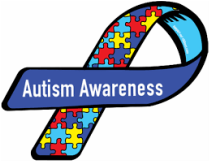Steve Summers wrote a guest post at Autismum and I have re-posted it here in its entirety.
1. Please always keep in mind that communication difficulties are common with autism. We have difficulties in reading social cues and body language. Be patient and understanding.
2. We tend to take things literally and have often trouble reading between the lines. As a result, we may ask a lot of questions to clarify what is meant by something that you say. I have been told that I ask a lot of questions. Don’t be offended by this. It is our way of being sure that we understand what you are telling us. We may repeat back to you in our own words to try and get on the same page as you.
3. If we misunderstand something that you say, please be patient and expand on what you said and explain what you meant. Don’t assume a negative or hostile intent from us if we misunderstand something that you said. Keep in mind that communication can be difficult for us. Things that come naturally to you take extra effort by us.
4. Please don’t get offended by our communication style. We tend to be frank, honest and matter of fact. Some people may interpret this as blunt or rude. We don’t intend to offend you by not sugar coating the things that we say. We don’t intend to be rude. Please don’t get defensive or assume that we are attacking you. Remember that communicating is hard for us. Don’t make negative assumptions. Too often we get corrected or attacked by someone who fails to give us some slack and the benefit of the doubt.
5. Please don’t expect eye contact. We may be able to force eye contact, but it is not comfortable for us. Making eye contact takes a conscious effort. This effort may take away from listening and understanding what you are saying. I tend to look at a person’s mouth more often than their eyes. Other autistic people will rarely look at your face. This is ok.
6. Please keep in mind that we most likely have been rejected, excluded, ridiculed or bullied in the past. If we seem anxious or insecure this may be due to living in a world that misunderstands us and is often hostile to us. We have to work hard to reach out to others. Please work at reaching back to us with understanding and kindness. If we feel that you are ignoring us we will feel bad about that. We may persist in asking for feedback from you. Please be reassuring and clearly express your support for us.
7. Please don’t speak down to us. Treat us as equals. We may sound flat or have an unusual tone to our voice. We may not speak with our voice at all. We may need to type our words. Please be patient with us. It may take us a while to formulate our answers.
8. Please don’t talk too loudly or yell at us. It is very jarring to us. It makes me jump when someone comes up to me and talks too loudly. It is like having someone jump out in the dark yelling “BOO!” at me. It causes an adrenaline dump in my body. I don’t like this.
9. Please do NOT touch us without warning. It will make us jump. We don’t like unexpected touches.
10. Please don’t assume that we lack empathy or emotion. We pick up on negative or judgmental attitudes. We know when people look down on us or are hostile to us. We will shut down if you show us a lack of respect.

